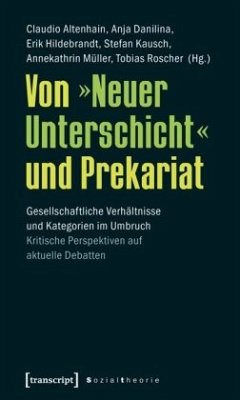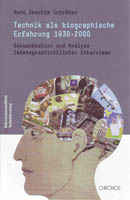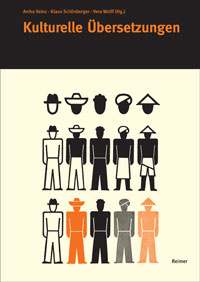Workshop: Disorder for Things (Vienna)
Disorder of Things
Technosciences, Practices of Knowledge and Epistemic Strategies
Institute for Human Sciences, Vienna, 7.- 9.10.2005
organized by Susanne Lettow, Jutta Weber and Cornelia Klinger
The established order of sciences structured by the division between nature and culture has been deeply shaken in the last decades through rapidly emerging technosciences like genetics, immunology, Artificial Life, and robotics. Today the human sciences are seeking new alliances with the technosciences, while the latter increasingly draw on concepts, theories and metaphors derived from the social sciences and the humanities. In this turbulent course of circulation of objects of knowledge, concepts and metaphors, signification does not remain stable as new �hybrid� concepts and scientific practices emerge and fields of knowledge are reconfigured. Boundary objects gain more and more importance in their function as gateways between diverse fields of knowledge thereby enabling new constellations of knowledge.
The workshop wants to analyse the emerging disorder of things in order to ask whether and which new dominant epistemic strategies and patterns of classification emerge, producing new forms of structural inclusion and exclusion, of visibility and invisibility. Starting from different disciplines and fields of knowledge like philosophy, robotics, science studies, genetics and the history of science, the workshop aims at analysing different forms of knowledge and concept transfer. By bringing together partial perspectives and insights we want to discuss structural similarities and epistemic affinities.
We see the destabilization of traditional orders and dispositives and thus the analysis of the disorder of things as a promising field to discover potentials of intervention. At the same time it is crucial to ask how far critical strategies and forms of �counter-knowledge� themselves stabilize new hegemonic orders and whether they just mirror them by claiming their own radical otherness. To avoid naïve �counter-strategies� it may be particularly instructive to compare contemporary discussions on techno-rationalization with those during the end of the 19th century and the beginning of the 20th century.
We regard the contemporary transformation of the human sciences and the new alliances with the technosciences as a challenge as well as a chance to develop new epistemic strategies, which lie at the heart not only of gender studies but of science and technology studies and critical social theory in general.
Confirmed Speakers:
- Christine Blättler, Centre for Literature Studies, Berlin
- Cornelia Klinger, Institute for Human Sciences, Vienna
- Susanne Lettow, Institute for Human Sciences, Vienna
- Maureen McNeil, Institute of WomenŽs Studies, Lancaster University
- Maria Osietzki, Institute of History of Science & Technology, University of Bochum
- Charis Thompson, Department of Gender and Women�s Studies and Rhetoric, University of California, Berkeley
- Jutta Weber, Institute for Philosophy of Science, University of Vienna
- Karin Wozonig, Research Centre for Gender Studies, University of Vienna
The workshop starts on Friday 2pm and ends on Sunday 2pm.
Registration: lettow@iwm.at (max. 15 participants)
Technosciences, Practices of Knowledge and Epistemic Strategies
Institute for Human Sciences, Vienna, 7.- 9.10.2005
organized by Susanne Lettow, Jutta Weber and Cornelia Klinger
The established order of sciences structured by the division between nature and culture has been deeply shaken in the last decades through rapidly emerging technosciences like genetics, immunology, Artificial Life, and robotics. Today the human sciences are seeking new alliances with the technosciences, while the latter increasingly draw on concepts, theories and metaphors derived from the social sciences and the humanities. In this turbulent course of circulation of objects of knowledge, concepts and metaphors, signification does not remain stable as new �hybrid� concepts and scientific practices emerge and fields of knowledge are reconfigured. Boundary objects gain more and more importance in their function as gateways between diverse fields of knowledge thereby enabling new constellations of knowledge.
The workshop wants to analyse the emerging disorder of things in order to ask whether and which new dominant epistemic strategies and patterns of classification emerge, producing new forms of structural inclusion and exclusion, of visibility and invisibility. Starting from different disciplines and fields of knowledge like philosophy, robotics, science studies, genetics and the history of science, the workshop aims at analysing different forms of knowledge and concept transfer. By bringing together partial perspectives and insights we want to discuss structural similarities and epistemic affinities.
We see the destabilization of traditional orders and dispositives and thus the analysis of the disorder of things as a promising field to discover potentials of intervention. At the same time it is crucial to ask how far critical strategies and forms of �counter-knowledge� themselves stabilize new hegemonic orders and whether they just mirror them by claiming their own radical otherness. To avoid naïve �counter-strategies� it may be particularly instructive to compare contemporary discussions on techno-rationalization with those during the end of the 19th century and the beginning of the 20th century.
We regard the contemporary transformation of the human sciences and the new alliances with the technosciences as a challenge as well as a chance to develop new epistemic strategies, which lie at the heart not only of gender studies but of science and technology studies and critical social theory in general.
Confirmed Speakers:
- Christine Blättler, Centre for Literature Studies, Berlin
- Cornelia Klinger, Institute for Human Sciences, Vienna
- Susanne Lettow, Institute for Human Sciences, Vienna
- Maureen McNeil, Institute of WomenŽs Studies, Lancaster University
- Maria Osietzki, Institute of History of Science & Technology, University of Bochum
- Charis Thompson, Department of Gender and Women�s Studies and Rhetoric, University of California, Berkeley
- Jutta Weber, Institute for Philosophy of Science, University of Vienna
- Karin Wozonig, Research Centre for Gender Studies, University of Vienna
The workshop starts on Friday 2pm and ends on Sunday 2pm.
Registration: lettow@iwm.at (max. 15 participants)
kschoenberger - 20. Jul, 14:08
















Trackback URL:
https://technikforschung.twoday.net/stories/849105/modTrackback